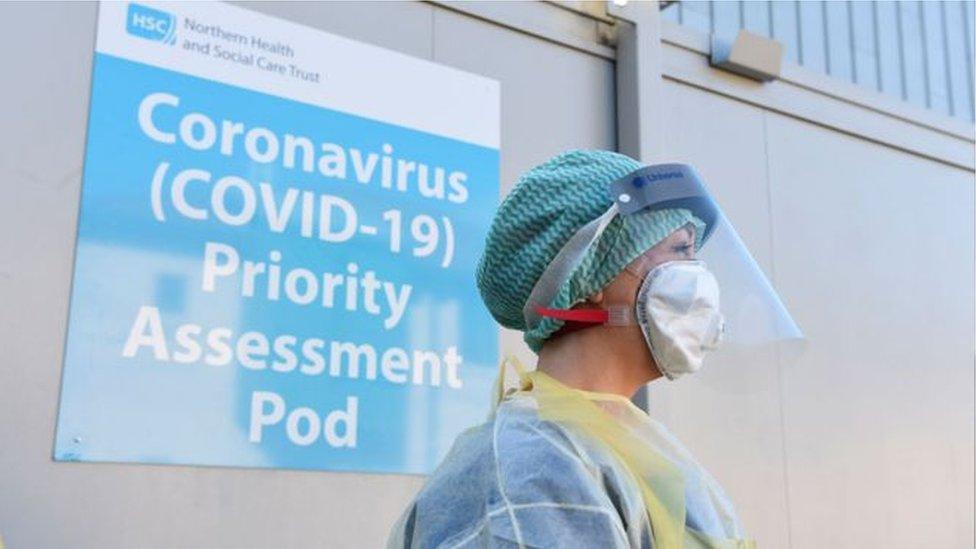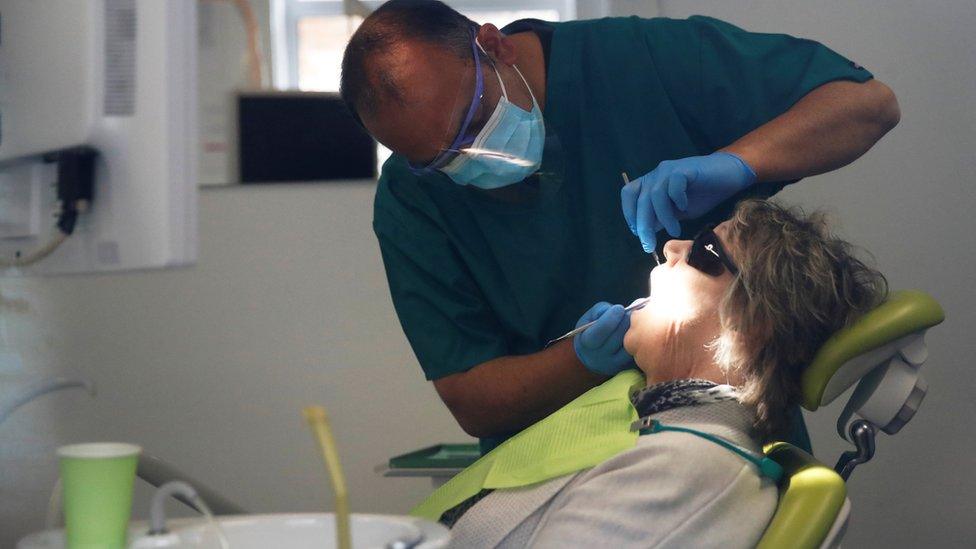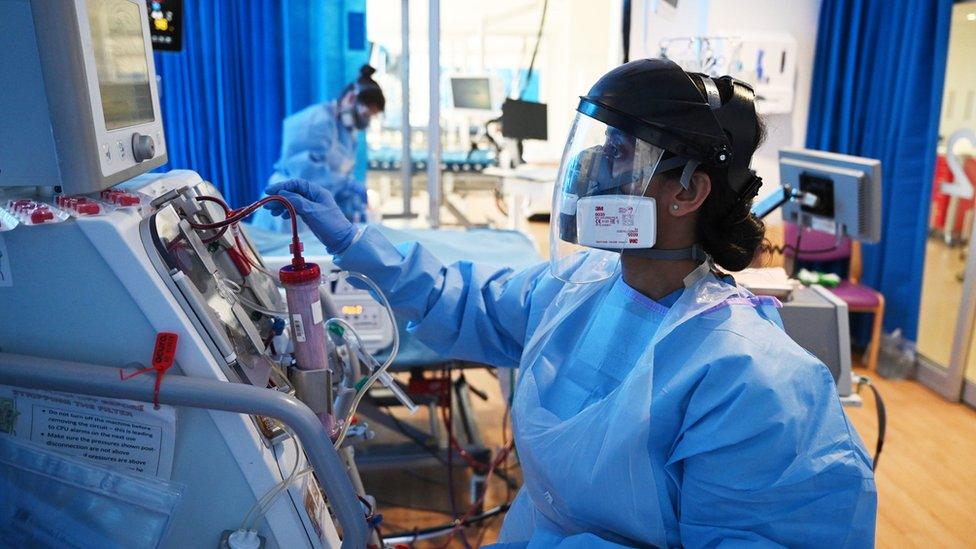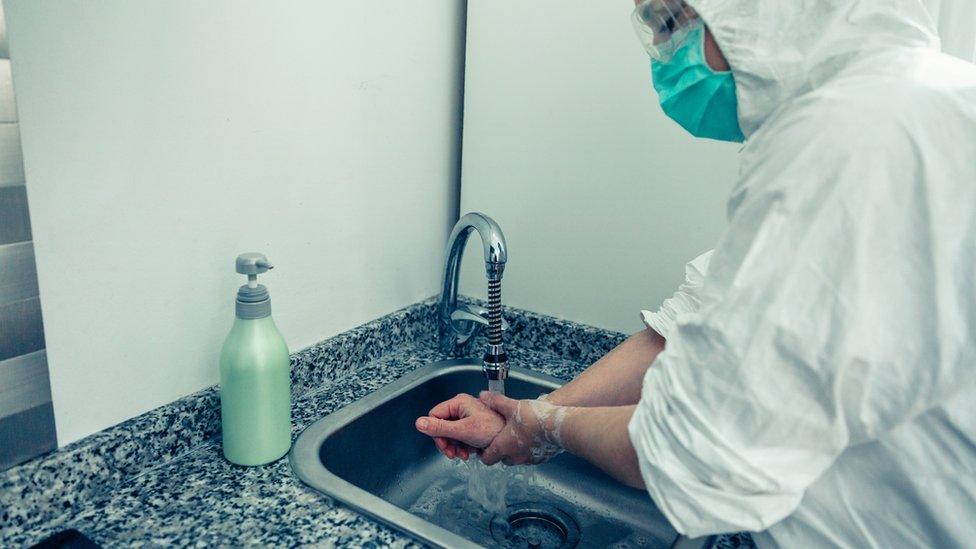Coronavirus: Almost 170m PPE items delivered in five months
- Published

Almost 170m items of personal protective equipment (PPE) were delivered to Northern Ireland's health service in the first five months of the Covid-19 pandemic.
That is according to the Business Services Organisation (BSO).
It said from March to July 2020, its Procurement and Logistics Service (PaLS) delivered 167,464,244 "core" items of PPE.
This includes masks, visors and eye protectors, aprons and gowns.
167,464,244Total number of "core" items of PPE delivered
93,895,000Gloves
31,921,000Face masks
31,146,000Aprons
8,603,000Face visors / eye protectors
In addition, the BSO delivered 4,425,000 items it classed as "Covid impacted".
These are items such as hand sanitiser, antiseptic wipes, scrubs and theatre caps, which are not viewed as essential items of PPE.
The Business Services Organisation provides specialist services to the health and social care sector in Northern Ireland.
Some primary care providers also source extra PPE themselves, which is not included in these figures.
These include dentists, GPs, pharmacists and optometrists.
The busiest delivery period so far came in late March and early April when some 15 million items were delivered, around twice the weekly average.
The figures also show that some eye protectors were withdrawn after being found to be defective.

Dentists have acquired extra PPE which is not reflected in the figures
The core PPE delivered from March to July 2020 included:
31,146,000 aprons and 656,000 gowns
1,243,000 FFP3 face masks and 31,921,000 IIR face masks
8,603,000 face visors / eye protectors
93,895,000 gloves
As for Covid impacted items, there were:
385,000 hand sanitisers
262,000 scrubs
1,083,000 theatre caps
2,695,000 wipes
The BSO says it intends to publish statistics such as these every month in future, but may revise how they are presented.
Other items not viewed as essential PPE
2,695,000Antiseptic wipes
1,083,000Theatre caps
385,000Hand sanitisers
262,000Scrubs
In a statement it stressed that "these experimental statistics are based on management information sources, some of which, historically, may not be as robust as those which feed other official statistics series".
- Published10 June 2020

- Published11 May 2020

- Published15 July 2020
